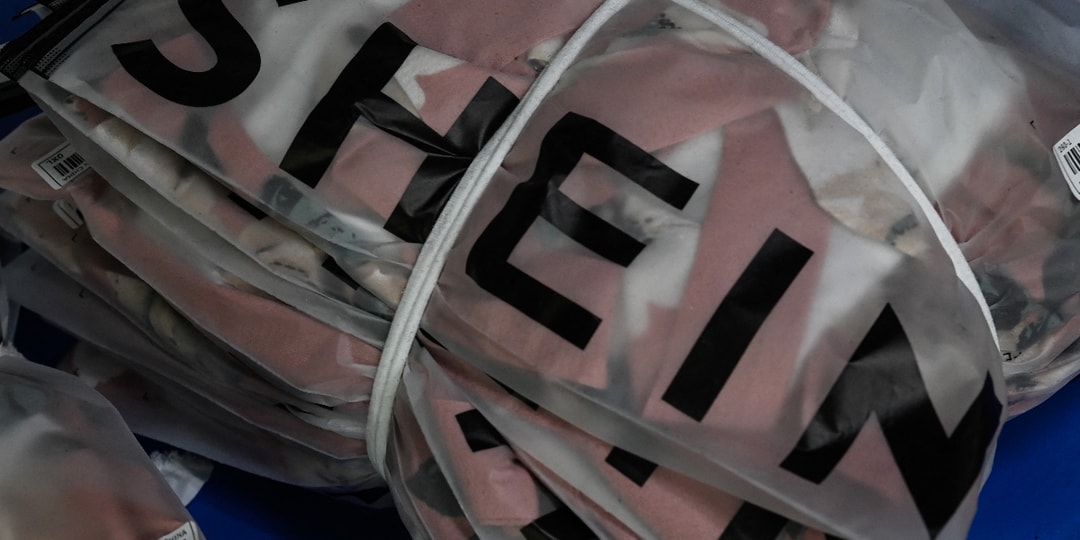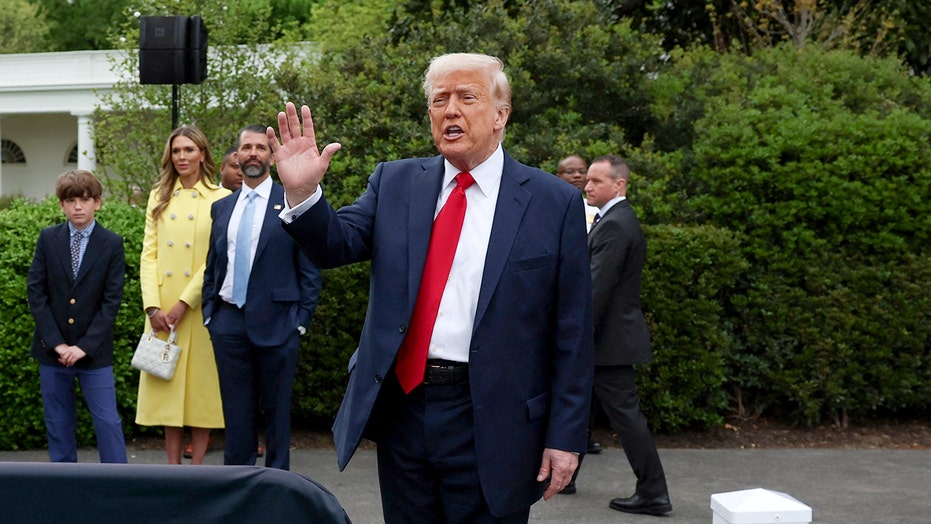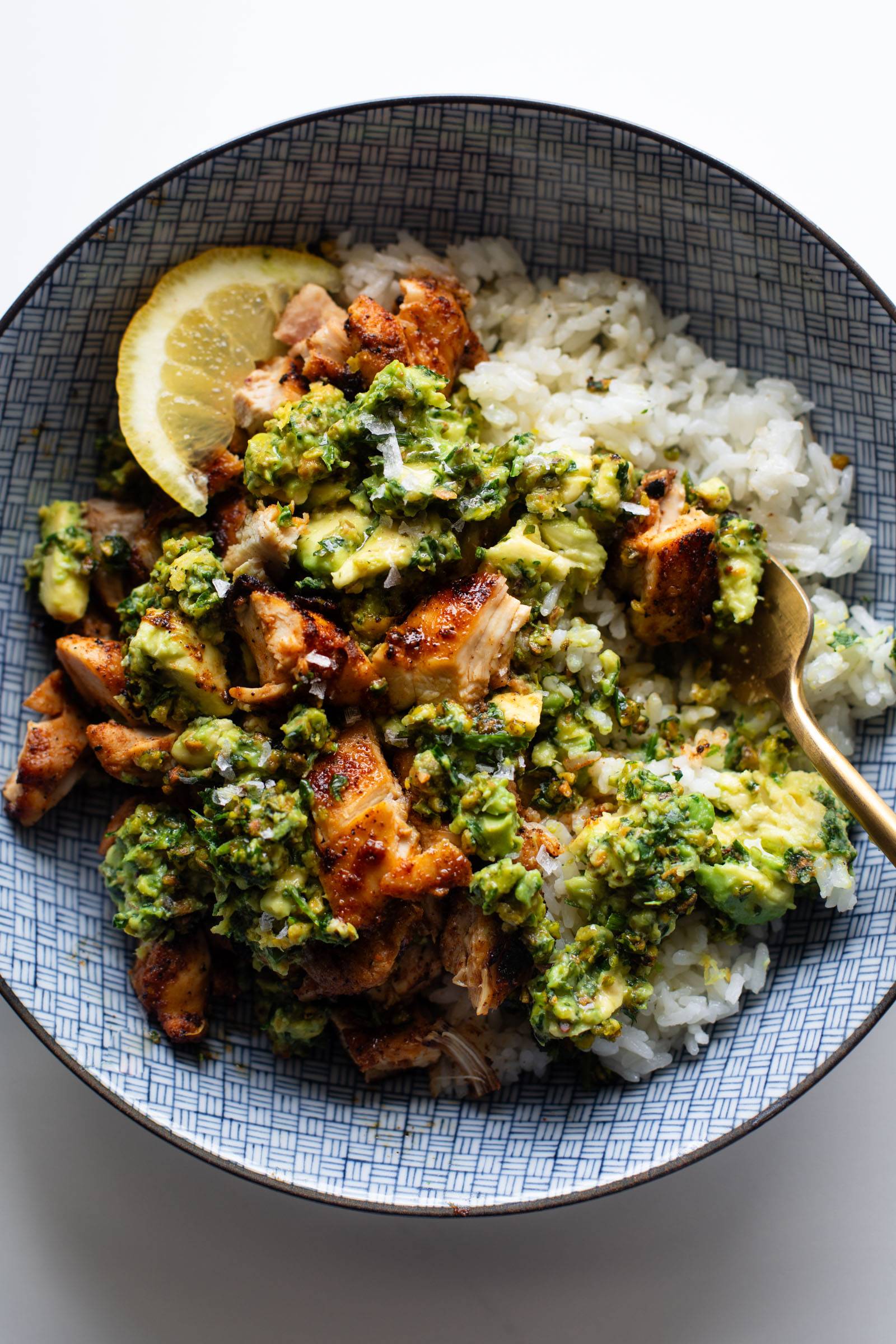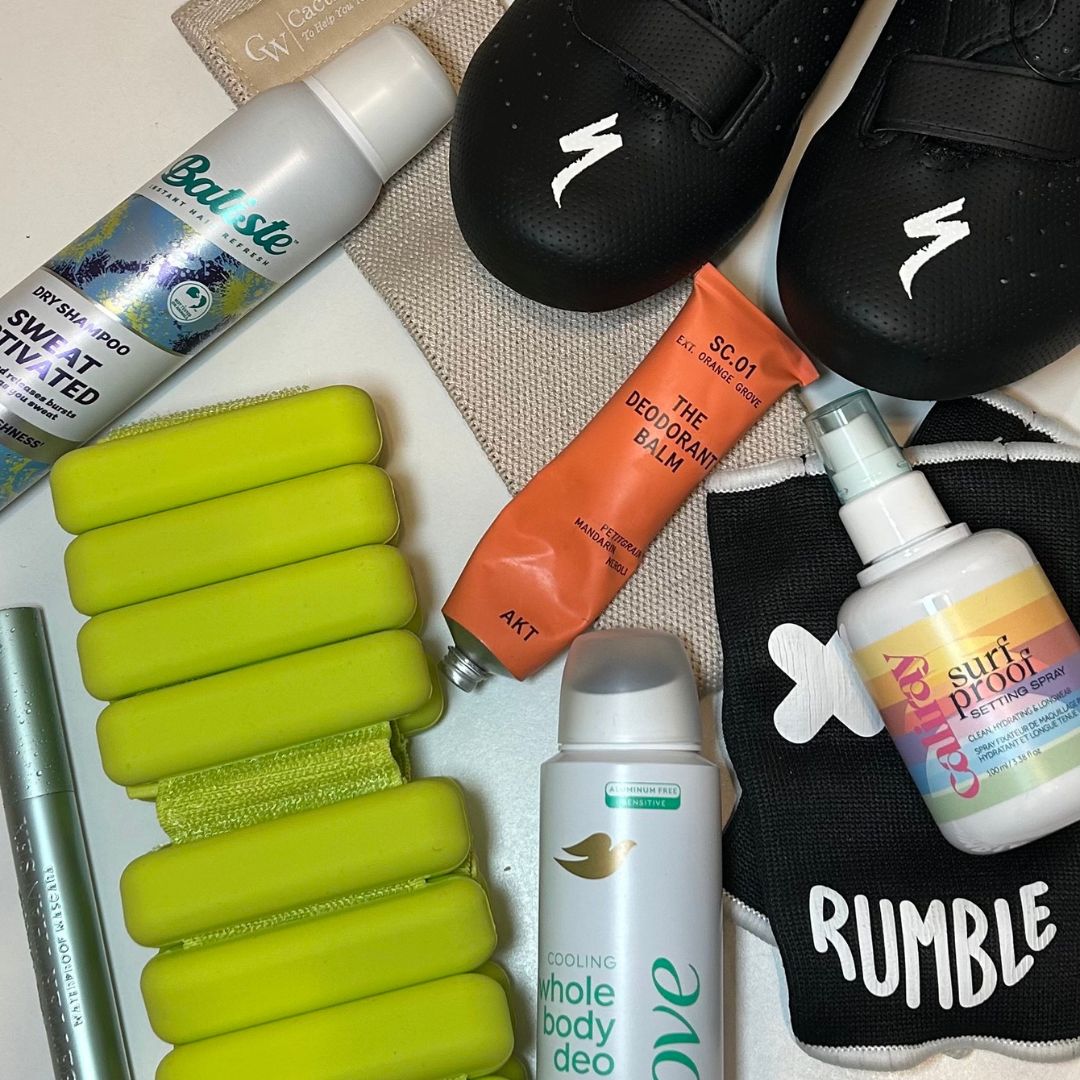Chinese Factories Have Entered The Tariff Chat
Fashion’s current business model, which relies heavily on low-cost offshore manufacturing, may hang in the balance — at least in America. As US President Trump charges forth with an aggressive tariff plan on goods coming into the US, neither consumers, brands, nor suppliers seem ready to swallow the costs. In response to the shock-inducing tariffs, China’s popular e-commerce sites are scrambling to maintain low prices, and alleged suppliers are finding new ways to reach consumers directly. The first months of US President Donald Trump’s term have rattled global markets with the implementation of his controversial tariff policies. However, shortly after the tariffs were set to take effect at midnight on April 8, the White House announced a 3-month pause on April 9, for all but one country — China. Instead, the president increased the proposed tariff from 104% to 145% in response to a retaliatory tariff from China. Since about 2020, Chinese e-commerce sites like Temu, Shein, and the new TikTok Shop have gained wide appeal from US consumers, offering lower prices than US retailers for various products, especially apparel, homeware, and toys. Trump’s unyielding effort to push the tariffs would not only hurt Chinese businesses but also lead to major price increases for US consumers, who largely consume imported goods. On Wednesday, Temu and Shein shared similar statements warning customers that prices would rise at the end of April “due to recent changes in global trade rules and tariffs.” “We’ve stocked up and stand ready to make sure your orders arrive smoothly during this time,” said Temu’s statement.” “We're doing everything we can to keep prices low and minimize the impact on you.”In addition to the tariffs, the Trump administration is poised to condemn the “de minimis” tax policy, which both platforms have benefited from. Previously granting imports with a value under $800 an exemption from taxes, future orders will be charged heavy duties by the US starting on May 2.With US consumer confidence falling sharply, shoppers are seeking new avenues to bypass the increased costs coming for Chinese-made goods. Some are looking into Chinese wholesale apps similar to Alibaba, a movement that is already making a visible impact. As of April 17, a Chinese wholesale platform notorious for luxury dupes called DHgate rose to #2 and popular e-commerce site Taobao rose to #5 in Apple’s US App Store charts.On TikTok, Chinese users claiming to be factories for popular brands are encouraging consumers to order directly from them. A video by content creator @lunasourcingchina has been a central point of debate as people point out that the mentioned Lululemon supplier is not on the company’s official manufacturer list. Elsewhere, American users are putting together resource lists of Chinese suppliers and factories where viewers can find good deals, but it's unclear whether such strategies offer plausible alternatives for consumers. Many videos, like one from user @kellybaums boasting 2.6 million likes, question the legitimacy of the content from alleged manufacturers.With the unpredictable moves already made by the US administration, one can’t say for sure what the future holds for the fashion industry. However, the moment does offer a point of reflection for the business as a whole. Shein and Temu are inevitably tied into the widespread criticisms of fast fashion, not only by sustainability advocates but also consumers who see the companies as culprits for overconsumption. For name brands, the moment reveals that in this difficult economic environment, some consumers are ready to bypass brands to stay afloat, giving "direct-to-consumer" a whole new meaning.Click here to view full gallery at Hypebeast


Fashion’s current business model, which relies heavily on low-cost offshore manufacturing, may hang in the balance — at least in America. As US President Trump charges forth with an aggressive tariff plan on goods coming into the US, neither consumers, brands, nor suppliers seem ready to swallow the costs. In response to the shock-inducing tariffs, China’s popular e-commerce sites are scrambling to maintain low prices, and alleged suppliers are finding new ways to reach consumers directly.
The first months of US President Donald Trump’s term have rattled global markets with the implementation of his controversial tariff policies. However, shortly after the tariffs were set to take effect at midnight on April 8, the White House announced a 3-month pause on April 9, for all but one country — China. Instead, the president increased the proposed tariff from 104% to 145% in response to a retaliatory tariff from China.
Since about 2020, Chinese e-commerce sites like Temu, Shein, and the new TikTok Shop have gained wide appeal from US consumers, offering lower prices than US retailers for various products, especially apparel, homeware, and toys. Trump’s unyielding effort to push the tariffs would not only hurt Chinese businesses but also lead to major price increases for US consumers, who largely consume imported goods.
On Wednesday, Temu and Shein shared similar statements warning customers that prices would rise at the end of April “due to recent changes in global trade rules and tariffs.” “We’ve stocked up and stand ready to make sure your orders arrive smoothly during this time,” said Temu’s statement.” “We're doing everything we can to keep prices low and minimize the impact on you.”
In addition to the tariffs, the Trump administration is poised to condemn the “de minimis” tax policy, which both platforms have benefited from. Previously granting imports with a value under $800 an exemption from taxes, future orders will be charged heavy duties by the US starting on May 2.
With US consumer confidence falling sharply, shoppers are seeking new avenues to bypass the increased costs coming for Chinese-made goods. Some are looking into Chinese wholesale apps similar to Alibaba, a movement that is already making a visible impact. As of April 17, a Chinese wholesale platform notorious for luxury dupes called DHgate rose to #2 and popular e-commerce site Taobao rose to #5 in Apple’s US App Store charts.
On TikTok, Chinese users claiming to be factories for popular brands are encouraging consumers to order directly from them. A video by content creator @lunasourcingchina has been a central point of debate as people point out that the mentioned Lululemon supplier is not on the company’s official manufacturer list.
Elsewhere, American users are putting together resource lists of Chinese suppliers and factories where viewers can find good deals, but it's unclear whether such strategies offer plausible alternatives for consumers. Many videos, like one from user @kellybaums boasting 2.6 million likes, question the legitimacy of the content from alleged manufacturers.
With the unpredictable moves already made by the US administration, one can’t say for sure what the future holds for the fashion industry. However, the moment does offer a point of reflection for the business as a whole. Shein and Temu are inevitably tied into the widespread criticisms of fast fashion, not only by sustainability advocates but also consumers who see the companies as culprits for overconsumption. For name brands, the moment reveals that in this difficult economic environment, some consumers are ready to bypass brands to stay afloat, giving "direct-to-consumer" a whole new meaning.
















_Brain_light_Alamy.jpg?width=1280&auto=webp&quality=80&disable=upscale#)


















































